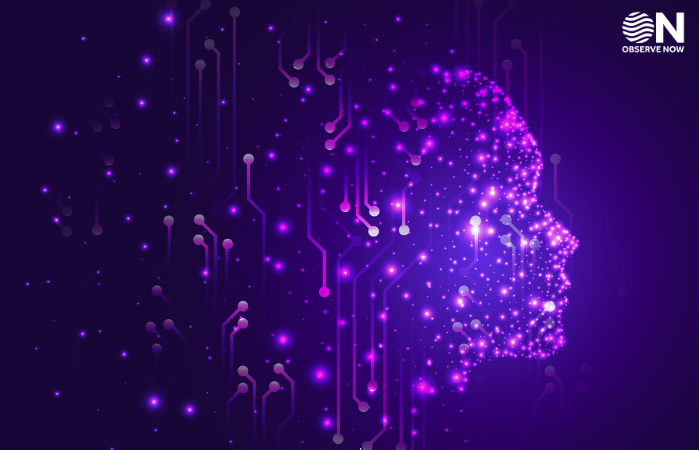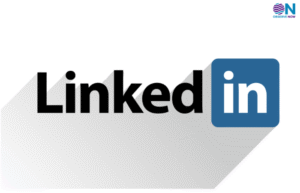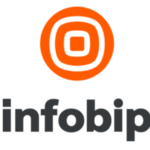Innovate or Perish: Embracing Generative AI in Your B2B Marketing Playbook

In today’s rapidly evolving digital landscape, organizations face an existential choice: innovate or risk obsolescence. The advent of Generative AI (Gen AI) represents a pivotal opportunity for B2B marketers to not only adapt but to thrive amidst shifting dynamics and audience expectations. As companies increasingly rely on data-driven strategies, understanding the implications of Gen AI is crucial for staying competitive.
B2B marketing is undergoing a seismic shift driven by changing buyer personas and the demand for hyper-personalized content. Modern consumers expect tailored interactions that resonate with their specific needs and desires, making traditional marketing strategies less effective. Embracing Gen AI allows marketers to enhance customer segmentation, optimize lead generation, and significantly improve content creation while meeting these evolving expectations.
This article delves into the transformative role of Generative AI in B2B marketing, examining its benefits, challenges, and best practices for integration. We will explore real-world applications, future trends, and how companies can leverage Gen AI to not only engage customers effectively but also drive sustainable growth. Prepare to discover how to harness this powerful technology as a fundamental element of your marketing playbook.
The Role of Generative AI in B2B Marketing
Generative AI is transforming B2B marketing by streamlining buyer journeys and enhancing content personalization. By automating repetitive tasks such as information gathering, RFP preparation, and vendor comparisons, it increases purchasing efficiency and frees sales teams to focus on higher-value activities.
Moreover, Generative AI empowers marketers to create tailored content and real-time user interactions. This technology automatically segments and scores leads, providing actionable insights that enable personalized experiences. Marketers can adapt their content strategies to effectively engage AI-driven bots involved in the buying process, making customer engagement more intelligent and timely.
Consider these key benefits:
- High-Quality Content at Scale: Automating content creation significantly reduces time and resources, leading to more efficient marketing efforts.
- Real-Time Refinement: AI provides live feedback based on user engagement, allowing content to continuously evolve in response to market demands.
Table: Benefits of Generative AI in B2B Marketing
| Benefits | Impact |
| Task Automation | Increased purchasing efficiency |
| Content Personalization | Improved customer engagement |
| Real-Time Feedback | Continuous content adaptation |
Generative AI is not just a powerful tool; it is reshaping how B2B marketing strategists and business decision-makers think about the customer journey.
Shifting User Behavior and Content Expectations
In the evolving landscape of B2B marketing, generative AI has emerged as a crucial player in meeting the changing expectations of content consumers. This technology excels at enhancing content personalization, tailoring messages that connect on a deeper level with users. By leveraging AI’s real-time analysis capabilities, marketers can dynamically refine and adapt content based on feedback and engagement metrics, ensuring that the outreach remains relevant and impactful.
Automation through AI tools not only streamlines the information-gathering process but also accelerates the buyer journey, leading to more efficient purchasing decisions. This transformation enables businesses to craft unique and innovative content strategies that distinguish their messages in a crowded marketplace, capturing greater audience attention and satisfying evolving user expectations.
Understanding Modern Buyer Personas
Generative AI (GenAI) plays a pivotal role in redefining modern buyer personas. It assists sales teams with crucial tasks such as updating CRM data, preparing insights for customer conversations, and offering actionable sales guidance. With 66% of sales reps believing that GenAI incorporation will enhance their productivity, the potential impact on sales effectiveness is undeniable.
Moreover, AI empowers marketers to deliver highly personalized messaging that aligns with a prospect’s unique interests and behaviors. By analyzing customer data, AI uncovers patterns and trends that can inform sales strategies, leading to more tailored and effective customer engagement efforts. The real-time analysis capabilities of AI afford a continuous refinement process, ensuring marketing efforts remain dynamic and responsive.
The Demand for Personalized and Relevant Content
Today’s B2B marketing landscape demands that content is not only personalized but also highly relevant. AI technology allows sales teams to craft customized experiences through personalized email marketing and product recommendations, thereby enhancing customer relationships and engagement rates. Generative AI supports these efforts by automating lead segmentation and scoring, facilitating real-time interactions that enhance content personalization.
The use of generative AI leads to a profound, data-driven understanding of audiences, fostering impactful content strategies. Real-time analysis allows content refinement based on audience feedback, ensuring responsiveness to shifting preferences. Organizations investing in AI for marketing can achieve an ROI uplift of 10-20%, highlighting the financial benefits and the necessity of delivering personalized content.
Enhancing Customer Segmentation
In the competitive landscape of B2B marketing, customer segmentation has become a cornerstone strategy. With the integration of Generative AI, this strategy transforms from a manual, speculative process to a precise science. AI analyzes vast amounts of customer data, identifying shared characteristics, behaviors, and buying patterns among groups that may otherwise remain hidden. This enables marketers to create highly targeted campaigns tailored to specific segments, like industry verticals, company sizes, job titles, or stages in the buying cycle.
For instance, an AI-powered system can segment potential customers not just by their demographics but also by their browsing behaviors and previous interactions, allowing marketers to provide customized content that engages and converts specific individuals. Additionally, AI facilitates the creation of lookalike audiences based on first-party customer data. By using predictive modeling, marketing efforts can be directed towards similar audiences, enhancing the reach and impact of campaigns.
Moreover, integrating AI into customer segmentation also enhances lead scoring and forecasts conversion probabilities with greater accuracy. By doing so, businesses can prioritize their marketing efforts and resources effectively, ensuring maximal ROI.
Leveraging AI for Advanced Data Analysis
Generative AI revolutionizes data analysis by offering B2B marketers the ability to sift through extensive customer data effortlessly. Through the identification and categorization of leads based on interactions, behaviors, and intent, AI provides a roadmap for efficient targeting of high-quality leads. Predictive analytics, driven by AI, enables marketers to anticipate customer needs and behaviors, understanding factors such as purchase likelihood and churn rates. This foresight empowers marketers to craft proactive strategies tailored to these insights.
AI technology streamlines data processes by enriching CRM data with predictive scoring, leading to optimized sales training and better prioritization of marketing efforts. Advanced data analysis capabilities enable businesses to forecast demand trends and align marketing campaigns with peak purchasing times. Tools like Tableau GPT exemplify how AI-generated data visualizations can uncover patterns and offer insights that might otherwise remain unnoticed.
Targeting Specific Markets with Precision
AI-driven audience targeting takes marketing campaigns from the realm of generic messaging to laser-focused engagement. By leveraging vast datasets, AI significantly enhances personalization, allowing marketers to deliver content that aligns seamlessly with individual preferences and behaviors throughout the customer journey.
Through the power of predictive analytics, AI identifies promising leads and forecasts optimal marketing strategies to engage these targets effectively. Real-time analysis capabilities ensure content is continuously refined, based on audience feedback and engagement metrics, keeping marketing efforts responsive to ever-changing preferences.
Generative AI in B2B marketing facilitates advanced targeting at scale — a capability combining behavioral and firmographic data for unparalleled accuracy in reaching specific market segments. For B2B marketers seeking to make informed decisions and maximize impact, AI proves to be a powerful tool in tailoring marketing efforts to resonate with precision-targeted audiences.
Optimizing Lead Generation
Generative AI in B2B marketing is revolutionizing how businesses approach lead generation, providing an unparalleled edge. According to recent studies, the implementation of Generative AI in marketing efforts has resulted in a 26% increase in lead generation volumes, with a notable boost in efficiency ranging from 15-20% in marketing campaigns. Furthermore, US B2B marketers utilizing chatbots optimized through AI have witnessed similar increases in lead volumes of 10-20%.
Why is this happening? Generative AI’s ability to analyze vast amounts of data enables marketers to generate actionable insights—this helps fine-tune marketing strategies for even better results. Organizations leveraging artificial intelligence have seen a substantial 50% increase in sales-qualified leads, highlighting AI’s compelling value proposition in boosting the conversion funnel. Additionally, AI automation allows sales professionals to save some two hours and 15 minutes daily, amplifying their capacity to focus on cultivating relationships with potential customers.
Automating Lead Qualification Processes
Lead qualification doesn’t have to be a tedious, repetitive task that drains resources. Enter AI-powered predictive lead scoring— a tool that analyzes extensive datasets to identify the patterns guiding marketers in predicting which leads are more likely to convert. Natural Language Processing (NLP) is key here, as it can categorize leads based on interactions and behaviors, enabling teams to prioritize high-quality leads effectively.
By automating lead qualification processes with intelligent AI systems, marketing teams can free up valuable time to focus on more strategic initiatives. Consistent messaging powered by AI helps enhance customer engagement, reinforcing the connection with leads. This not only streamlines operations but aligns marketing efforts with data-driven insights, resulting in better marketing outcomes. For modern B2B marketers, the integration of AI in lead qualification is a powerful tool enabling enhanced efficiency and goal achievement.
Strategies for Improved Lead Scoring
To stand out in the competitive B2B landscape, marketers must adopt strategies that fully utilize the potential of Generative AI. Predictive lead scoring powered by AI drives thorough evaluation and eliminates the guesswork, ensuring that the most promising opportunities are not missed. With tools like Salesforce Einstein or 6sense, B2B marketers can reshape their strategies, analyzing extensive datasets to identify lucrative patterns in lead behavior.
Setting measurable goals, such as increasing lead-to-opportunity conversion rates by 15% and reducing cost-per-acquisition by 20%, can guide successful AI initiatives. Customizing these AI tools to meet specific business needs elevates lead scoring precision. Equally essential is the training of marketing and sales teams to expertly wield these tools—ensuring they can leverage the metrics and insights generated, leading to more informed decisions and optimized results.
The Impact of Generative AI on Content Creation
In today’s fast-paced digital landscape, B2B marketers face the dual challenge of producing quality content at an unprecedented speed while maintaining strategic oversight. Generative AI (Gen AI) is proving to be an indispensable ally in this journey, transforming the content creation process by automating tasks and unlocking new levels of creativity. By harnessing Gen AI, marketing teams can swiftly generate high-quality blog posts, social media updates, and other essential materials, allowing more time to focus on innovative strategies and enhancing customer engagement.
AI-Powered Content Generation Tools
The advent of AI-powered content generation tools marks a significant leap forward in how B2B marketing teams approach their campaigns. These tools not only accelerate content creation but also introduce unprecedented efficiency by slashing time and costs. By taking over repetitive tasks like customer persona research and keyword analysis, Gen AI clears the path for marketers to concentrate on high-value activities that demand human insight and creativity. Notably, these AI-driven tools can dive into vast datasets, providing valuable insights into predictive analytics, identifying key trends, and optimizing strategies for improved outcomes.
Here’s how Gen AI tools can benefit your marketing strategies:
- Automate Buyer Research: Streamline the process, saving hours on manual research.
- Optimize Content Strategy: Utilize data-driven insights for more informed decisions.
- Enhance Content Diversity: Break traditional molds with creative, novel content.
Maintaining Brand Voice and Consistency
Integrating Generative AI into your marketing arsenal not only enhances efficiency but also ensures brand voice consistency across diverse platforms. AI copywriting assistants, when adequately trained, can mirror brand nuances, delivering content that’s both on-brand and of high quality. This ensures that whether it’s a succinct social media post or an in-depth whitepaper, your brand speaks with a uniform tone that resonates with your target audience.
However, maintaining brand identity shouldn’t come at the cost of creativity. AI technologies foster innovation by inspiring unique perspectives while safeguarding your brand’s core message. This balance ensures that your content remains fresh, engaging, and, most importantly, aligned with your brand ethos.
Personalization at Scale
In today’s competitive B2B landscape, delivering a personalized experience at scale is no longer just a luxury—it’s a necessity. Thanks to Generative AI, sales teams can now create highly tailored interactions across various touchpoints, significantly boosting engagement rates and driving sales. AI facilitates this by crafting bespoke content and automating lead segmentation and scoring. These capabilities enable B2B marketing strategies to become more relevant, personalized, and effective.
Moreover, AI-driven personalization uses vast amounts of customer data to understand preferences and adapt content strategies accordingly. Through smart segmentation, B2B marketers can target their audiences more accurately, resulting in higher conversion rates. Hyper-personalization, once a daunting prospect, is now achievable. Generative AI customizes messaging and recommendations based on individual behaviors and preferences, turning every interaction into a meaningful engagement opportunity. Ultimately, this AI-driven approach not only enhances customer relationships but also makes B2B marketing efforts more impactful.
Dynamic Content Delivery Strategies
Generative AI is transforming how marketing teams deliver content, bringing a more data-driven and personalized touch to B2B marketing strategies. By leveraging AI, marketers can gain deeper insights into audience behaviors and craft impactful content that stands out. Real-time audience feedback and engagement metrics provide opportunities to refine and optimize content continuously, ensuring it stays relevant and resonates strongly with target audiences.
The efficiency brought by generative AI in content creation is another noteworthy aspect. What was once a labor-intensive task can now be streamlined, freeing up marketers to focus on strategic planning and execution. Real-time insights provided by AI also allow marketers to swiftly address customer needs, preferences, and pain points, delivering timely content, offers, and solutions. This dynamic and responsive approach not only optimizes marketing efforts but also cultivates a more engaged and satisfied customer base.
Real-Time User Interaction and Engagement
AI technologies have advanced the realm of real-time user interactions, providing companies with powerful tools to offer seamless and personalized outreach. Conversational AI, with its ability to analyze user queries and gauge intent accurately, brings human-like responsiveness and engagement, enhancing the overall user experience.
AI-driven chatbots play a critical role in maintaining 24/7 availability for brands, facilitating continuous engagement without the constraints of time zones and office hours. These AI tools streamline complex processes, allowing for a more fluid and trustworthy relationship with audiences. Furthermore, by elevating automation and responsiveness, AI significantly impacts real-time engagement, playing a pivotal role in driving conversions.
As the boundaries of B2B marketing continue to expand, embracing AI-driven personalization and dynamic content strategies will be vital. For CMOs, marketing strategists, and digital transformation leaders, the question isn’t whether to adopt Generative AI, but how soon and effectively it can be integrated.
Utilizing AI for Predictive Analytics
In the rapidly evolving landscape of B2B marketing, predictive analytics powered by Generative AI (Gen AI) has emerged as a powerful tool for anticipating market trends and customer behavior. By leveraging vast amounts of historical data, AI allows marketers to shift from reactive to proactive strategies. Imagine knowing exactly when your potential customer will make a purchasing decision or identifying which marketing channels will yield the best return on investment—predictive analytics makes this possible.
Anticipating Customer Needs and Behaviors
Predictive analytics uses AI to forecast customer needs and behaviors, such as purchase likelihood or churn risk, enabling marketers to plan more effectively. By analyzing historical patterns, Gen AI provides actionable insights that transform raw data into a strategic asset. For instance, AI-driven tools can track website activity to determine when leads are ready to engage, thus maximizing marketing efforts. Moreover, AI chatbots and virtual assistants collect real-time data on customer preferences, enhancing the ability to tailor personalized experiences.
Enhancing Decision-Making Through Data Insights
Gen AI enhances decision-making by dissecting large volumes of data, including customer interactions and market trends, to provide actionable insights. For B2B marketing strategists, this means informed decision-making that boosts overall effectiveness. AI tools like Salesforce Einstein and Hubspot AI not only rank leads by conversion likelihood but also automate campaign performance measurement. By integrating AI-driven intent data with behavioral insights, marketers can achieve highly personalized customer experiences, significantly increasing engagement and conversion metrics.
| Key Benefits of Gen AI in Predictive Analytics |
| Proactive Marketing Strategies |
| Optimized Resource Allocation |
| Enhanced Customer Engagement |
| Improved Campaign Performance |
| Informed Decision-Making |
Sales Intelligence and the AI Advantage
In the current era of rapid technological advancement, Artificial Intelligence (AI) is radically transforming the landscape of sales intelligence. By harnessing the power of AI, businesses can gather and analyze vast amounts of data related to prospects, competitors, and market trends. These data-driven insights are invaluable, allowing sales teams to drive more meaningful conversations and close deals with greater precision.
One of the standout functionalities of AI in sales is its ability to identify buying signals, such as frequent visits to pricing pages or heightened interactions with marketing emails. This capability ensures that sales outreach is both timely and relevant, significantly increasing the likelihood of conversion.
Tools such as LinkedIn Sales Navigator are leveraging AI to track prospect engagement effectively, suggesting optimal connections and messages. This facilitation results in faster deal progression and a more streamlined sales pipeline.
Moreover, AI algorithms unearth patterns and trends within customer data, offering sales teams valuable insights into customer behavior and preferences at every stage of the sales journey. Real-time performance insights via AI empower sales leaders to make well-informed decisions, allocate resources effectively, and improve sales forecast accuracy.
Streamlining Sales Processes with AI
Implementing AI in sales processes requires a strategic approach tailored to a B2B company’s unique needs. Focusing on opportunities like lead scoring and automating email marketing campaigns can maximize AI’s impact.
Generative AI contributes by streamlining tedious tasks such as drafting initial content and personalizing client outreach. This automation frees up sales and marketing professionals to concentrate on more creative and revenue-generating activities.
Machine learning algorithms within generative AI uncover hidden insights and predict trends, which can inform more effective marketing strategies. Intelligent automation through AI carries out time-consuming tasks like lead qualification and email marketing, enabling marketing teams to prioritize strategic initiatives and enhance customer engagement.
The use of generative AI extends beyond internal teams, amplifying outcomes for external channel and strategic partners, showcasing its comprehensive impact on business performance.
Improving Sales Team Productivity
Artificial Intelligence, especially generative AI, plays a pivotal role in enhancing the efficiency and productivity of sales teams, leading to significant improvements in performance.
Organizations that have integrated AI into their operations report a dramatic 50% increase in sales-qualified leads, highlighting AI’s substantial impact on lead generation. Moreover, sales professionals benefit from AI automation, saving an average of two hours and 15 minutes daily – time that can be redirected to more productive selling activities.
Furthermore, 90% of sales professionals acknowledge that generative AI enables them to serve customers faster, thereby improving the quality of customer interactions. Impressively, the introduction of a conversational AI assistant has resulted in a 14% increase in productivity within customer support, evidenced by the higher number of issues resolved per hour.
Streamlining Sales Processes with AI
In the realm of B2B marketing, Generative AI stands out as a powerful tool for streamlining sales processes. By automating repetitive tasks, such as lead scoring and drafting email campaigns, AI allows sales teams to focus on more creative initiatives. This can result in enhanced customer interaction and engagement.
Key Applications and Benefits:
- Lead Qualification: AI-driven tools automate the qualification process, saving time and allowing sales professionals to prioritize high-impact opportunities.
- Personalized Outreach: Generative AI personalizes customer engagement, delivering tailored messages that resonate with potential customers, thereby strengthening customer relationships.
- Predictive Analytics: Machine learning algorithms provide valuable insights, revealing hidden patterns and trends that inform impactful B2B marketing strategies.
Impactful Insights:
The implementation of AI enables sales leaders to optimize marketing efforts, not only boosting internal team performance but also extending benefits to external partners. Ultimately, the synergy created by intelligent automation fosters a more efficient customer journey, enhancing overall customer experience.
For B2B companies looking to stay ahead, embracing AI-driven solutions can pave the way for more informed decisions and transformative business outcomes.
Improving Sales Team Productivity
In the ever-evolving business landscape, Artificial Intelligence (AI), particularly Generative AI, is transforming how sales teams operate. By streamlining efficiency, productivity, and pipeline management, AI brings remarkable improvements. Organizations leveraging AI have witnessed a whopping 50% surge in sales-qualified leads, underlining the technology’s substantial impact on lead generation.
Key Benefits:
- Time-Saving: Sales professionals save an average of two hours and 15 minutes daily through AI automation. This liberates valuable time for crucial selling activities.
- Enhanced Customer Interaction: A resounding 90% of sales professionals report that Generative AI boosts their ability to serve customers faster, enhancing interactions.
- Increased Productivity: The deployment of conversational AI assistants results in a 14% rise in productivity within customer support, measured by issues resolved per hour.
| Benefit | Impact |
| Time Savings | Two hours and 15 minutes saved daily |
| Better Customer Interactions | 90% faster customer service |
| Higher Productivity | 14% increase in issues resolved per hour |
Forward-thinking organizations harness AI-driven insights to elevate their sales processes, transforming AI from just a tool into a strategic ally.
Chatbots and Virtual Assistants in B2B Marketing
Incorporating chatbots and virtual assistants into B2B marketing strategies has rapidly evolved from an innovative trend to a strategic necessity. This transformation is underscored by statistics showing that 26% of US B2B marketers have seen a 10-20% increase in lead generation by leveraging chatbots. Furthermore, an astounding 99% of B2B marketers acknowledge that AI chatbots enhance lead conversion rates, emphasizing their critical role in optimizing marketing efforts.
Key Benefits:
- Lead Generation Boost: The implementation of chatbots can contribute a 10-20% increase in lead generation.
- Improved Conversion Rates: 99% of marketers see enhancement in lead conversion through chatbots.
- Efficiency in Sales Processes: 90% of sales professionals agree that generative AI speeds up customer service, indicating its positive impact on sales efficiency.
Enhancing Customer Support with AI-Powered Tools
AI-powered tools offer transformative benefits for customer support teams, significantly streamlining operations. Generative AI automates routine content creation tasks, freeing up resources to focus on crucial customer interactions. AI-driven chatbots provide instant assistance for customer inquiries, ensuring improved engagement and satisfaction. Moreover, using AI analytics enriches customer relationship management (CRM) data, leading to a deeper understanding of customer needs and interactions.
Key Considerations:
- Automated Content Creation: Reduces time and costs in response crafting.
- Instant Customer Support: AI chatbots handle inquiries swiftly, improving engagement.
- Enhanced CRM: AI analytics enrich CRM data for better customer relationship management.
- Personalized Interaction: Tailored outreach enhances customer connections.
Continuous training and onboarding in AI tools are vital to maintaining superior customer service while effectively leveraging technology.
24/7 Engagement and Lead Capture
AI’s capability to provide around-the-clock engagement represents a seismic shift in lead capture and management for B2B companies. By automating follow-up strategies, AI ensures ongoing interaction with potential clients, dramatically enhancing lead capture opportunities at all hours. Customized messaging tailored to the individual interests and behaviors of prospects further amplifies the effectiveness of these interactions.
- Continuous Engagement: AI-powered systems ensure non-stop interaction with prospects.
- Customized Messaging: Tailored communications elevate the lead capture process.
- Efficiency in Focus: Automation allows marketing teams to prioritize high-value activities.
- Real-time Feedback: AI offers insights that continuously refine engagement strategies.
- Predictive Analytics: Enables marketers to align content with the buyer journey, ensuring relevant interaction.
As AI continues to refine these strategies, marketers are empowered to make informed decisions that enhance customer engagement throughout every stage of the buyer’s journey.
Ethical Considerations in AI Adoption
As businesses navigate the dynamic landscape of B2B marketing, integrating Generative AI (Gen AI) presents both opportunities and challenges. It is crucial for B2B marketers, CMOs, and digital transformation leaders to recognize the ethical dimensions of AI adoption.
Data Privacy and Compliance Issues
Incorporating Gen AI into B2B marketing strategies necessitates rigorous attention to data privacy and compliance. With regulations like GDPR dictating how data is processed, businesses must prioritize safeguarding user information to maintain trust and avoid hefty penalties. For industries such as healthcare and legal services, which handle sensitive data, compliance becomes even more critical. Here’s a quick checklist for ensuring compliance:
- Understand Regulatory Requirements: Stay informed about the specific data privacy laws governing your sector.
- Implement Robust Security Measures: Protect user data with stringent security protocols.
- Monitor AI Outputs for Bias: Regularly audit AI-generated content to ensure fairness and adherence to ethical standards.
Building Trust with Transparent AI Practices
Trust forms the cornerstone of successful AI integration in B2B marketing. Sales representatives and marketers need assurance that AI tools are reliable and augment human efforts without overstepping their bounds. Here are key strategies to foster trust through transparency:
- Informed Consent: Always obtain consent from individuals whose data will be used. Clearly communicate the purpose and potential outcomes.
- Human Oversight: Implement mechanisms for human intervention. This ensures accountability and the ability to address any ethical concerns swiftly.
- Align Policies with Business Objectives: Create comprehensive AI policies that align with overall business values, reinforcing a culture of ethical AI usage.
Building an Ethical Framework for Gen AI Integration
For B2B companies, embracing Gen AI ethically involves balancing technological innovation with human oversight. By prioritizing customer well-being and emphasizing transparent practices, businesses can enhance customer experiences without compromising trust.
- Prioritize Transparency: Ensure that all stakeholders are aware of how AI is being used within the company and its potential impacts.
- Enhance Skills and Knowledge: Address the skills gap by training employees on the ethical implications and functionalities of AI tools.
- Document and Communicate AI Policies: Clearly outline AI usage guidelines that support both ethical practices and business objectives.
The Necessity for Continuous Innovation
The Necessity for Continuous Innovation in B2B Marketing
In the fast-evolving world of B2B marketing, continuous innovation is crucial for maintaining a competitive edge. As regulations and technologies change, B2B marketers must adapt swiftly to thrive.
Conducting regular audits and consulting with legal experts is vital to ensure compliance with evolving regulations. Implementing pilot testing allows businesses to evaluate AI solutions on a smaller scale before full deployment, mitigating risk and maximizing effectiveness.
Embracing Generative AI enables B2B companies to automate tasks and streamline content creation, improving efficiency and productivity. It’s a game-changer for marketing efforts, allowing teams to focus on strategy and creativity.
Key practices to foster continuous innovation include:
- A/B Testing: Supports ongoing evaluations and refinements of marketing strategies.
- Monitoring Key Metrics: Conversion rates and lead response times provide valuable data-driven insights into AI investments’ impact.
Adopting these strategies helps businesses remain agile, enhancing customer engagement and experiences.
Consider innovation as a cycle, not an endpoint. By continuously refining approaches, B2B marketers can ensure their strategies remain effective and future-proof, driving growth and success.
















